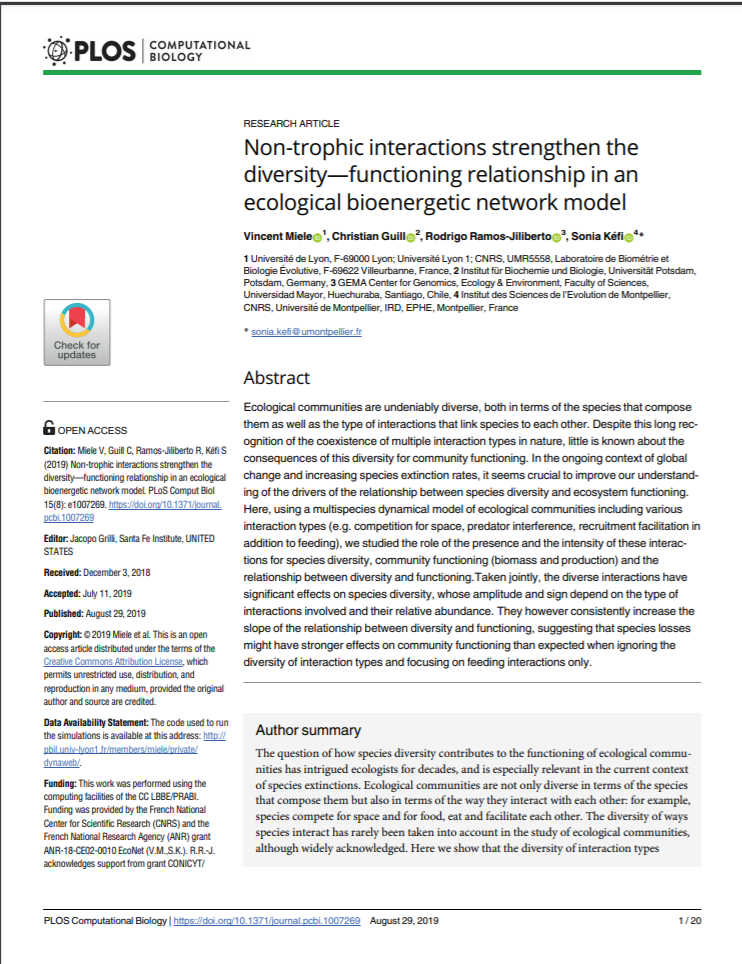Non-trophic interactions strengthen the diversity-functioning relationship in an ecological bioenergetic network model

Fecha
2019Autor
Ramos-Jiliberto, Rodrigo [Univ Mayor, Fac Sci, GEMA Ctr Genom Ecol & Environm, Santiago, Chile]
Miele, Vincent
Guill, Christian
Kefi, Sonia
Ubicación geográfica
Notas
HERRAMIENTAS
Acceda a títulos restringidos
¿Cómo descargar?Resumen
Ecological communities are undeniably diverse, both in terms of the species that compose them as well as the type of interactions that link species to each other. Despite this long recognition of the coexistence of multiple interaction types in nature, little is known about the consequences of this diversity for community functioning. In the ongoing context of global change and increasing species extinction rates, it seems crucial to improve our understanding of the drivers of the relationship between species diversity and ecosystem functioning. Here, using a multispecies dynamical model of ecological communities including various interaction types (e.g. competition for space, predator interference, recruitment facilitation in addition to feeding), we studied the role of the presence and the intensity of these interactions for species diversity, community functioning (biomass and production) and the relationship between diversity and functioning. Taken jointly, the diverse interactions have significant effects on species diversity, whose amplitude and sign depend on the type of interactions involved and their relative abundance. They however consistently increase the slope of the relationship between diversity and functioning, suggesting that species losses might have stronger effects on community functioning than expected when ignoring the diversity of interaction types and focusing on feeding interactions only.
URI
https://doi.org/10.1371/journal.pcbi.1007269http://repositorio.umayor.cl/xmlui/handle/sibum/6406
https://journals.plos.org/ploscompbiol/article?id=10.1371/journal.pcbi.1007269
Coleccion/es a la/s que pertenece:
Si usted es autor(a) de este documento y NO desea que su publicación tenga acceso público en este repositorio, por favor complete el formulario aquí.